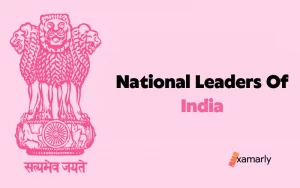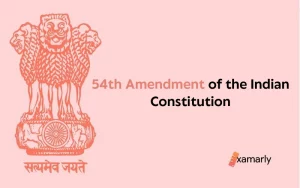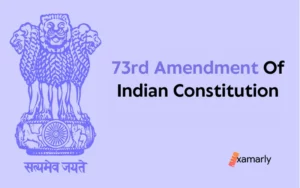Unlock the secrets of success in the UPSC Civil Services Examination by mastering current affairs. The dynamic world we live in generates a constant stream of news and events, but “How To Prepare Current Affairs For UPSC” can help you navigate it with ease.
However, it is just not this. One of the benefits of current affairs preparation is that you can cover a significant static portion of your syllabus for subjects like Indian Polity and Economy. Hence, you are optimizing and saving time in the exam preparation journey.
In this comprehensive coverage, we’ll explore the best methods to stay informed and prepared for the ever-changing landscape of current events, giving you the confidence to tackle the UPSC exam head-on.
- Sources Of Current Affairs For UPSC
- Significant Topics to Concentrate on for UPSC Current Affairs
- How To Prepare Current Affairs For UPSC?
- Know the Syllabus of Current News of the UPSC Exam
- Limit Study Resources to Prepare
- Utilize Online Note-Taking Tools
- Know What to Read and What Not to Read
- Plan Out Your Time for Preparation
- Practice
- How to Memorize Current Events for UPSC?
- Conclusion
Sources Of Current Affairs For UPSC
To clear UPSC CSE Exam it is essential for IAS aspirants to give some time to current affairs and that too on a daily basis.
You can improve your UPSC preparation for current affairs and learn more about how to prepare current affairs for UPSC by consulting the sources listed below:
Newspapers
Read English daily newspapers, like The Hindu or Indian Express, to prepare for the UPSC CSE current affairs.
Just seek for:
- News articles related to current issues or events of national and international importance (as mentioned in the UPSC Syllabus).
- Fodder stuff (i.e. news items with data, events, or facts that can be phrased for compelling answer writing or essays in UPSC Mains to enhance it).
Magazines
Besides newspapers, go through a weekly or monthly magazine of current affairs as well. With a current affairs magazine, you will get a weekly or monthly compilation of current news with respect to science and technology, business or economy, environment, biodiversity, etc. which are essential for IAS or any other UPSC Exam.
Some of the current affairs magazines for UPSC exam preparation are listed below:
- Yojana Magazine
- Kurukshetra
- Pratiyogita Darpan
- India Year Book
- Economic and political weekly
- Civil Services Times
Above mentioned sources guarantees the authenticity of the study material. To know more about the Best Current Affairs Magazine For UPSC click on the linked text.
Internet
From newspaper reading, you won’t get the desired in-depth information about any current events or issues for the IAS (or UPSC Exam) which you can get with the help of the internet. You can find handwritten notes, online notes, online articles, and daily news compilations.
Remember to use only authentic source/s for studying.
Check out the useful linked articles related to UPSC from the table given below:
Significant Topics to Concentrate on for UPSC Current Affairs
The following subjects should be on your radar so that you have a complete understanding of every relevant issue currently in news and may maximize your Civil Service Exam Preparation:
- National and international affairs or issues.
- Current geographical phenomena, natural disasters, environment, and climate-change-related topics or issues.
- Socio-economic issues such as women’s issues, health-related issues, etc.
- Constitution, constitutional amendments topics.
- Current topics related to Governance, policies, and schemes of Government.
- High court and Supreme court verdicts, Multilateral Forums, Diplomatic relations or topics with reference to international reference, and many such topics.
- Poverty, budget, employment, World and Indian Economy, National and International security-related topics.
How To Prepare Current Affairs For UPSC?
“How do you keep up with all the current affairs news” or “How to prepare current affairs for UPSC” is the question that aspirants usually search about.
If you want to ace your UPSC exam and get ahead of the curve, here are the six best ways to make sure you’re not missing out on any current affairs information that might come up in your exam.
Know the Syllabus of Current News of the UPSC Exam
UPSC Civil Services Exam marks higher on answers based on current events. If you want to score well in the Mains exam, you must know the UPSC exam syllabus of current affairs.
UPSC may ask you questions related to central and state-sponsored schemes, recent bills passed in parliament, international relations, science and technology, and the list goes on. To prepare for this section, you must have a comprehensive understanding of current affairs.
UPSC has a vast syllabus for the prelims exams and UPSC Mains examinations. It contains both static and dynamic subjects, and while the syllabus of static subjects is not likely to change much, current affairs have a growing weight in the exam. Therefore, it is vital for aspirants to know the syllabus of current affairs for UPSC exams.
It will increase their chances of scoring well in the UPSC Mains exam and in the prelims. Analyzing previous year’s question papers will also help in knowing the type of questions that can be asked.
Limit Study Resources to Prepare
To excel in the UPSC Civil Services Examination, it is necessary to prepare for current affairs in a systematic and disciplined manner. Many candidates purchase too many current affairs study sources in the hope that more resources will help them in their preparation.
This approach is counter-productive.
Candidates should focus on quality over quantity and avoid spending money on useless resources. Use the mentioned tips to prepare for the UPSC Civil Services Exam by covering current affairs from the last year.
Utilize Online Note-Taking Tools
While it is highly recommended to make short notes in your planner for some article-specific questions in exams, doing so for all current affairs is extremely time-consuming. Furthermore, you can use tools like Evernote and Google Docs to take notes and manage them more effectively.
Simple copying and pasting of the website’s material into your document is all that is required. When you do this, you need to organize the content in a way that will make it easy to find.
Know What to Read and What Not to Read
Studying for the UPSC exam can be made much easier by not studying every article in the newspaper, for not everything in the newspaper is going to be on the UPSC exam. Previous year questions on current affairs will help you get a sense of what you should look for in the newspaper.
Plan Out Your Time for Preparation
Carefully read-only relevant articles of news and make sure you do not spend more than an hour reading the newspaper. Finish reading current affairs for the day within 1-2 hours. Beginners may take a bit longer at first.
With this exception, on weekdays limit it to no more than two hours a day. Make sure you go through your notes and do at least one revision during the course of the weekend.
Also Read: How Many Hours Of Study Is Required For UPSC?
Practice
Have you ever wondered why most of you have trouble memorizing while preparing for IAS? It is because most of you try to mug up too much in one go.
Practice smaller learning tasks as this will divide the vast information of the UPSC Syllabus into smaller blocks and will become easier for all the IAS aspirants to remember the chunks for UPSC.
To retain what you have learned so far,
- you have to work hard
- do some brain exercise (i.e., thinking will create a strong connection between what you have studied and what you have understood)
- practice what have you learned via quiz, debate, or by solving current affairs questions
It is difficult to go through piles of newspapers or magazines for revision or before the UPSC Exam. Hence to keep current affairs in your mind fresh for IAS, IPS, or any other allied Civil Services Exam, some tips are mentioned below.
Though everyone has a different method for memorizing, one has to figure out which strategy will work out for them.
How to Memorize Current Events for UPSC?
For UPSC Preparation, only reading current issues will be futile if you are unable to retain them in your memory. We’re going to walk you through the 5 tips listed below to do a quick revision of current affairs with ease.
- Make brief notes: Jot down important points that you studied from any of the sources. As for revision, you can’t mug up the piles of newspapers and magazines but 200 to 300 pages of current affairs notes will become easier to revise for UPSC Exam.
- Mind Maps: Compress your knowledge into a micro version in the form of mind maps. Like the place, the current issues or events in the center and the facts, data, or events about this will be kept in its branches or sub-branches. In this way, worthy information acquires one page which will help you to recollect all the information about that particular news within a short span while preparing for UPSC.
- Acronyms/Mnemonics: Mnemonics are useful as it helps IAS aspirants to recall any information in a sequence. For example, in our school time, we use BODMAS to remember in which sequence we have to simplify a given mathematical question(which comprises Bracket, Order, Division, Multiplication, Addition, and Subtraction). Similarly to memorize current affairs or their facts easily for UPSC, you can make acronyms by placing the first letter of each word of the fact into a single phrase.
- Repetition: Learning and constant revision are the two sides of the same coin for IAS or any other exam. Together both learning and a comprehensive revision plan will help you to retain the knowledge of current affairs yourself which will be fruitful for UPSC. Revise multiple times what you have studied so far. As the capacity of a brain is limitless, the more you revise, the more you can retain.
- Quiz: It is essential for IAS aspirants or any other civil services aspirants to give a quiz, or a mock test periodically. Daily practice and self-assessment will enable you to:
- Understand what you have learned and retained so far.
- Track your learning progress.
- Stay focused
- Expand the storage capacity of your brain
- Helps in memorizing current affairs which are significant for UPSC Exam.
Also Read: Useful Mnemonics For UPSC To Remember
Remember, knowledge is of no value unless you put it into practice. -Anton Chekhov
Conclusion
All these learning and memorizing strategies will provide you with an extra boost to your UPSC Preparation. Practice, an endless refining process, will maintain your focus and enable you to be consistent while preparing for IAS, IPS, or any other Civil Services Examination.
Daily Current affairs and general knowledge are all handy on the Examarly app which aspirants of UPSC, without wasting their precious time, can go through.
We hope, this will help you figure out how to prepare current affairs for UPSC?






